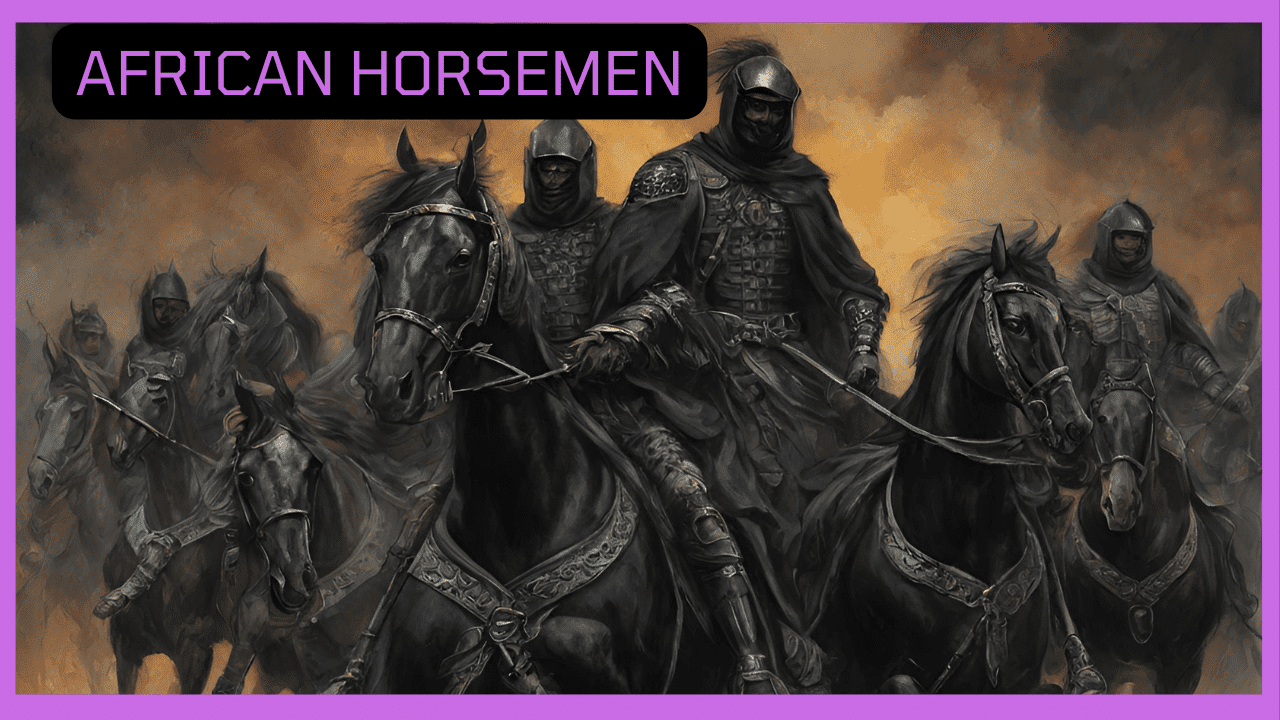I will be exploring the African horsemen and try to see if there are similarities with the cowboys. Cowboys hold a unique place in American history, often romanticized as heroic figures in popular culture. However, within this narrative, the contribution of black cowboys, who were just as skilled and diligent, remains largely unexplored.
In this blog post, I will delve into the fascinating history of black cowboys, tracing their roots back to ancient African horsemanship.
The African Connection: Horses in Ancient Africa
To understand the legacy of black cowboys, we must first recognize the deep-rooted relationship between Africans and horses. Contrary to assumptions that black cowboys learned their skills in America, the historical evidence points to an ancient African tradition of horsemanship. King Piankhi of Kush, for example, expressed his adoration for horses, showcasing the significance of horse culture in Africa.
Black Cowboys in America: Post-Civil War Era
As the Civil War came to an end, many enslaved individuals, particularly in the South, had acquired valuable skills in handling horses and cattle. This expertise became crucial for them in the post-war period. Moving westward, these black cowboys brought their skills to a new frontier, facing the challenges of discrimination and limited access to basic amenities in the towns they crossed.
The Struggles and Triumphs on the Trail
Life as a black cowboy was far from easy. Long hours, little sleep, and the constant threat of cattle thieves characterized their journey.
Despite the hardships, the lifestyle offered a semblance of freedom and dignity not readily available to Afro-descended individuals in America at the time. Estimates suggest that between 5,000 to 9,000 black cowboys existed in the 19th century, contributing significantly to the flourishing beef market.
Parallels in Mastery: Ancient African Horsemanship
The mastery of horsemanship among black cowboys in America finds its roots in ancient African history. The parallel is striking when we examine the skills and respect that both ancient Africans and black cowboys commanded.
Kushites, known for their skill and mastery of horses, were sought after, much like the black cowboys in the American West.
From Trail Bosses to Powerful Positions
Noteworthy figures, such as Joshua Loper, rose to prominence among black cowboys. Loper served as a trail boss on cattle drives, exemplifying the leadership and skill that black cowboys brought to the frontier. Despite the discrimination faced in towns, black cowboys earned respect and admiration from their peers for their courage and capabilities.
A Reflection of African History Outside the Continent
The history of Afro-descended people outside Africa often unknowingly mirrors the rich tapestry of African history. The skills, respect, and powerful positions achieved by black cowboys echo the experiences of ancient Africans in foreign lands. This fascinating connection highlights the enduring legacy of African horsemanship.
Conclusion: Unearthing a Hidden Legacy
In concluding this exploration of black cowboys and ancient African horsemanship, it becomes evident that the narrative extends beyond the American West. The skills, resilience, and contributions of black cowboys are a testament to the enduring legacy of African horsemanship, often overlooked but deserving of recognition.
As we reflect on this history, let us remember and celebrate the unsung heroes who shaped the American frontier and carried forth the ancient traditions of the African continent. This is all I will be taking on this topic.
Abbey Johnson has a Masters degree as an engineer and has over 3 years of teaching and research experience. He is happiest when on a bike and is also interested in electric energy and computer Science.

